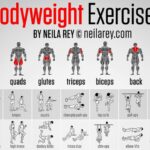Lifting For Beginners: Conquering the weight room needn’t be daunting. This guide demystifies the process, offering a structured approach to building strength and muscle safely and effectively. From mastering fundamental exercises like squats and deadlifts to understanding crucial aspects of nutrition and recovery, we equip beginners with the knowledge and confidence to embark on their fitness journey. We’ll cover everything from proper form and weight selection to creating a sustainable workout routine and avoiding common pitfalls.
This comprehensive guide breaks down the essential elements of weight training for beginners, providing practical advice, sample workout plans, and strategies for long-term success. We emphasize the importance of progressive overload, proper nutrition, and adequate rest to maximize results while minimizing the risk of injury. Whether your goal is increased strength, improved physique, or enhanced overall fitness, this guide provides the foundation you need to achieve your objectives.
Nutrition and Recovery for Beginners: Lifting For Beginners

Building muscle and achieving overall fitness requires a holistic approach, with nutrition playing a pivotal role alongside exercise. Proper fueling and recovery strategies are essential for maximizing gains and preventing injury, particularly for those new to weightlifting. This section details the nutritional and recovery elements crucial for beginners embarking on a strength-training journey.
Protein Intake for Muscle Growth and Repair
Protein is the fundamental building block of muscle tissue. After a workout, your muscles experience microscopic tears, and protein provides the necessary amino acids to repair and rebuild these fibers, leading to muscle growth (hypertrophy). A sufficient protein intake is therefore critical for maximizing results. The recommended daily protein intake for beginner lifters generally ranges from 1.6 to 2.2 grams per kilogram of body weight.
For example, a 70kg individual should aim for 112-154 grams of protein daily. This can be achieved through a variety of sources, including lean meats, poultry, fish, eggs, dairy products, legumes, and plant-based protein powders. Insufficient protein intake will significantly hinder muscle growth and recovery.
Sample Meal Plan for Beginner Lifters
A balanced meal plan should include a variety of nutrient-rich foods to support training and recovery. The following sample plan provides approximately 150 grams of protein (adjust portions based on individual needs and body weight):
| Meal | Food Items | Approximate Protein (grams) |
|---|---|---|
| Breakfast | 3 whole eggs, 1 cup oatmeal, 1 scoop whey protein | 35 |
| Lunch | 4oz grilled chicken breast, 1 cup brown rice, 1 cup mixed vegetables | 40 |
| Dinner | 5oz salmon, 1 cup quinoa, 1 cup broccoli | 50 |
| Snack 1 | Greek yogurt (150g) with berries | 20 |
| Snack 2 | Protein shake (whey or casein) | 25 |
This is a sample plan; individual needs may vary. Consulting a registered dietitian or nutritionist can help personalize a meal plan based on your specific goals and dietary preferences.
Hydration During and After Workouts
Adequate hydration is crucial for optimal physical performance and recovery. Water helps regulate body temperature, transport nutrients, and remove waste products. Dehydration can lead to fatigue, muscle cramps, and reduced performance. Beginners should aim to drink water before, during, and after workouts. The amount of water needed will vary depending on factors such as intensity and duration of exercise, climate, and individual sweat rate.
As a general guideline, aim for at least 8 glasses of water per day, and increase intake during and after intense training sessions. Electrolyte drinks can be beneficial during longer or more intense workouts to replenish lost electrolytes.
The Role of Sleep in Muscle Recovery, Lifting For Beginners
Sleep is not merely a period of rest; it’s a critical component of muscle recovery and overall fitness. During sleep, the body repairs and rebuilds muscle tissue, synthesizes hormones, and restores energy stores. Lack of sleep can impair these processes, hindering muscle growth, reducing strength gains, and increasing the risk of injury. Aim for 7-9 hours of quality sleep per night to optimize recovery and maximize training benefits.
Healthy Snacks for Muscle Recovery
Consuming protein and carbohydrate-rich snacks post-workout can aid in replenishing glycogen stores and initiating muscle protein synthesis.
- Greek yogurt with fruit
- Trail mix (nuts, seeds, dried fruit)
- Hard-boiled eggs
- Protein bar (choose low sugar options)
- Peanut butter and banana sandwich
Successfully navigating the world of weightlifting as a beginner requires dedication, patience, and a structured approach. This guide has provided a roadmap, equipping you with the fundamental knowledge and practical strategies to build a solid foundation. Remember, consistency is key. By prioritizing proper form, progressive overload, adequate nutrition, and sufficient rest, you’ll steadily build strength, increase muscle mass, and cultivate a lifelong fitness habit.
Embrace the journey, celebrate your progress, and enjoy the transformative power of weight training.

